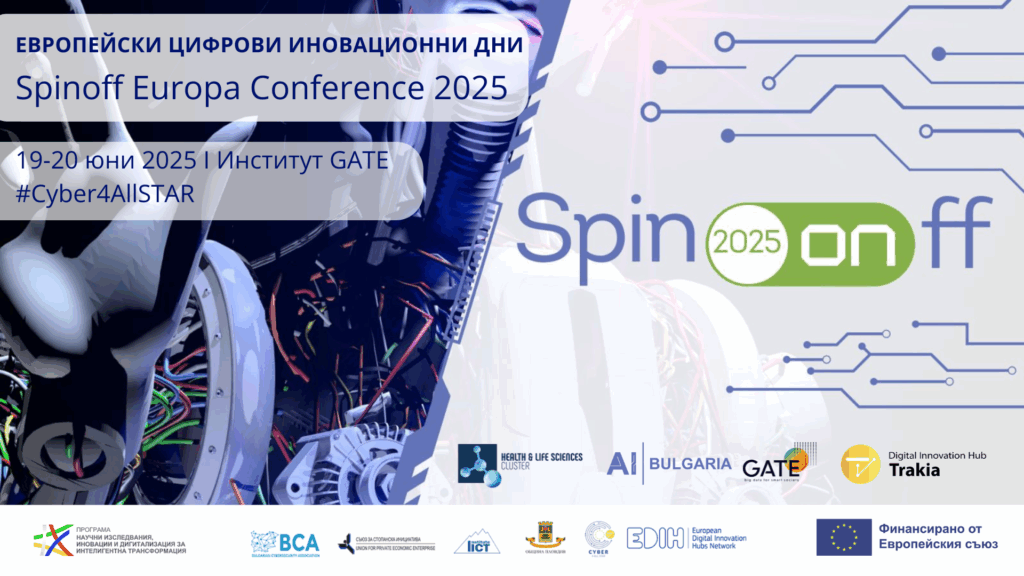When the world is changing so fast, new things are no longer an option but a mandatory standard. Innovative ideas have the power not only to shape the entire international landscape, but also to transform the ways we live and work. Creating the greatest ideas is not enough. Ideas need support, systematic organisation and the right environment to flourish. Most of all, they need reliable cyber protection more than ever.
Here the universities play a crucial role.
Academic institutions are not just institutions of learning from which knowledge emerges, they are unique factories of ideas. By promoting research, examinations and international cooperation, universities create the basis for the development of ideas. In a combination of entrepreneurship programmes, partnerships with industry and start-up accelerators, these ideas can go from a theoretical basis to being practically relevant and having a real impact in the world.
From start-ups in the technology sector, to sustainable solutions – universities emerge as the only place with such opportunity, where a student’s vision can translate into a real business model that not only supports economic development, but also societal progress. Universities are also the ones that started cybersecurity training before schools.
On the other hand, companies are increasingly engaged in development activities that are subject to cyber attacks.
These two communities teamed up on the Cyber4AllSTAR project to host the unique events for Bulgaria to support innovative ideas, which included a competition for nominations for the European finals.
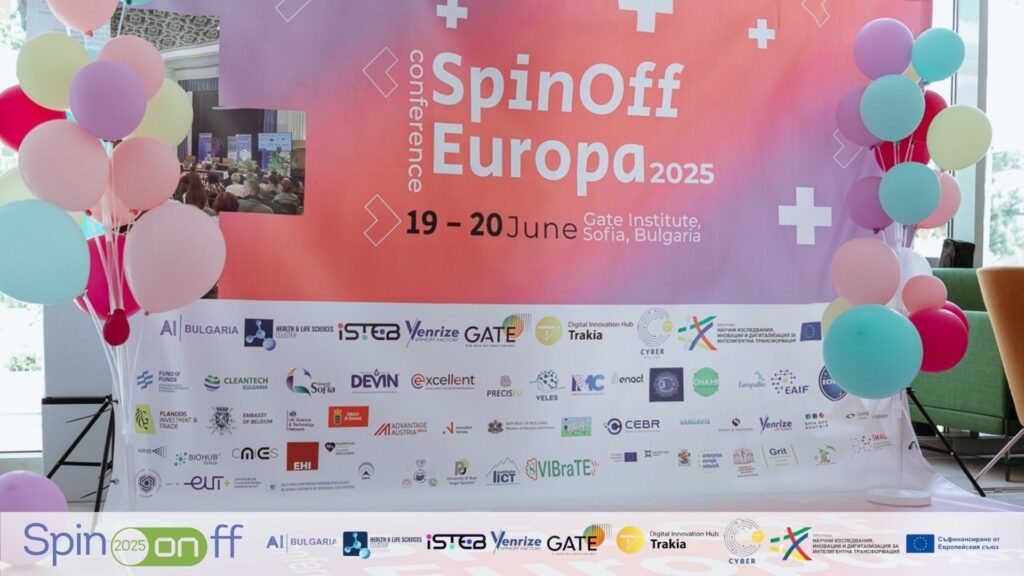
On 19 and 20 June 2025, the European Digital Innovation Days SpinOff consultancy events organised by the European Digital Innovation Hub Trakia, the Health and Life Sciences Cluster Bulgaria and the Artificial Intelligence Cluster Bulgaria were hosted by the GATE Institute. The event was attended by over 200 participants.
This two-day forum kicked off with touching words from Kristina Eskenazi, Chair of the Boards of Health and Life Sciences Cluster Bulgaria and Artificial Intelligence Cluster Bulgaria, who stressed that in 2025 “Europe is creating its future through science and technology”. Professor Silvia Ilieva – Director of GATE Institute, Viktor Gusev (Sofia Investment Agency) and Miglen Evlogiev (Bulgarian Cyber Security Association) confirmed their commitment to building a sustainable scientific and entrepreneurial ecosystem.
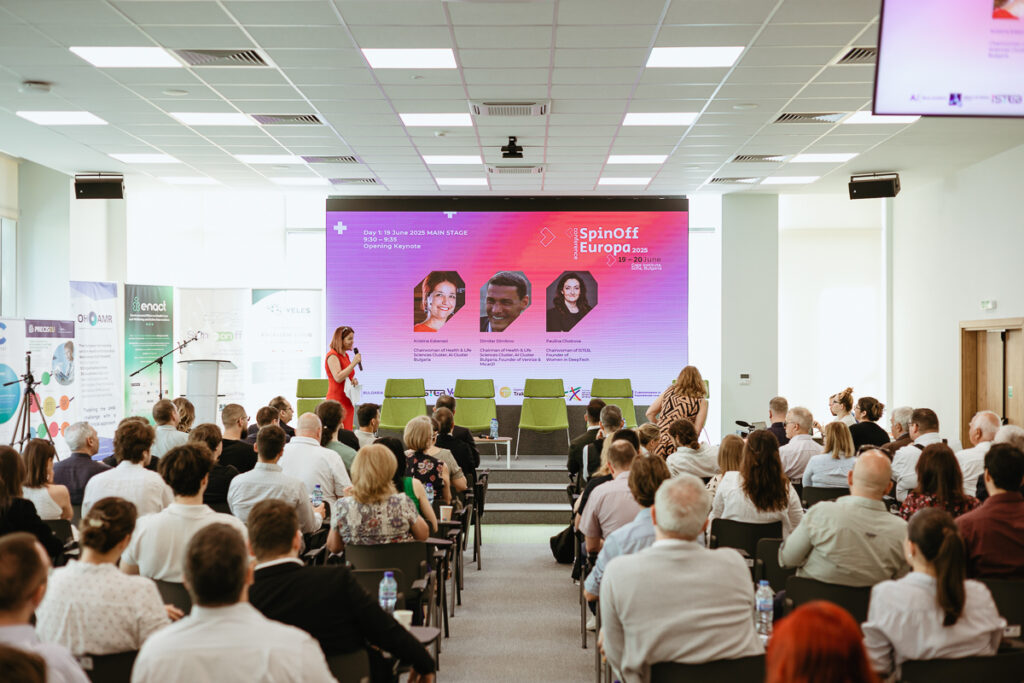
In a series of powerful opening lectures, Dario Zoric from the Danish Ministry of Foreign Affairs presented the vision for a European Digital Identity, Stefan Dobrev from the European Institute of Innovation and Technology (EIT) outlined the role of innovation for a competitive Europe, and Assoc. Prof. Dr. Boyan Zhekov focused on the new opportunities under the Horizon Europe programme.
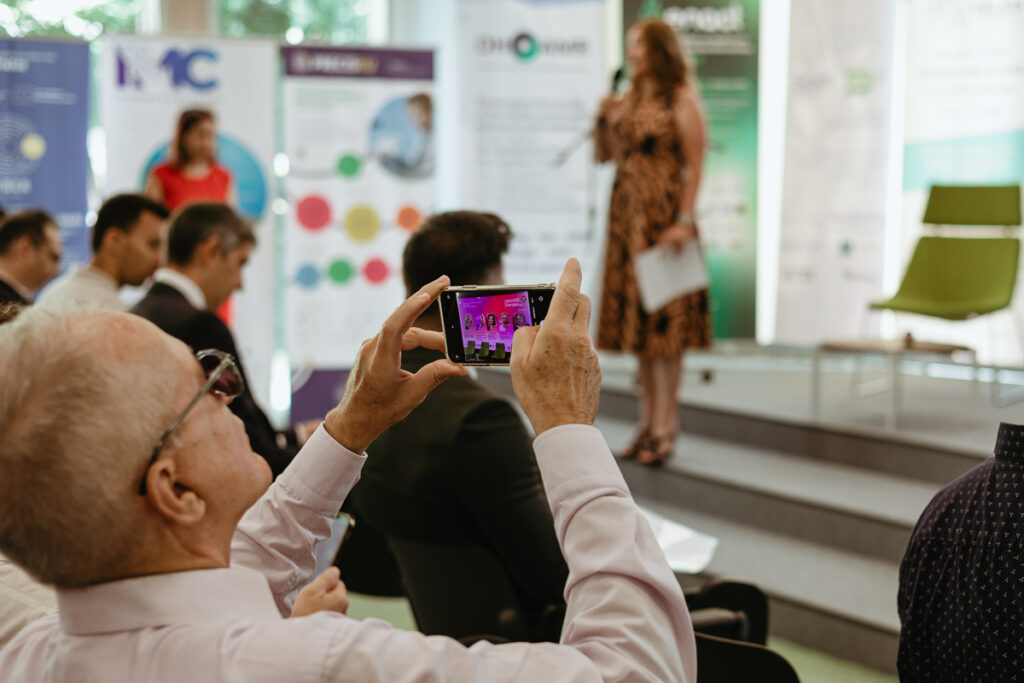
The program of events included not only main but also parallel workshops and a CyberTech zone for practical consultations. At the beginning of the programme, the the “Chips of Europe” panel, which focused on the strategic importance of microelectronics for Europe’s technological autonomy. Moderated by Prof. Dimitar Nikolov (TU-Sofia and project leader), the panel brought together perspectives from different generations and fields. Prof. Naiden Shivarov, Director of the National STEM/STEM Center, shared how STEM education is becoming the backbone of the future high-tech economy. Prof. Milen Spasov, Deputy Director of School of Technology and Founder of Coderunners, talking about the real connection between students, entrepreneurship and technology. Particularly inspiring was the participation of Kristian Antov – student from TU-Sofia and part of the team of the project “Chips of Europe”, who presented the point of view of the new generation of engineers ready to actively participate in the European semiconductor revolution.
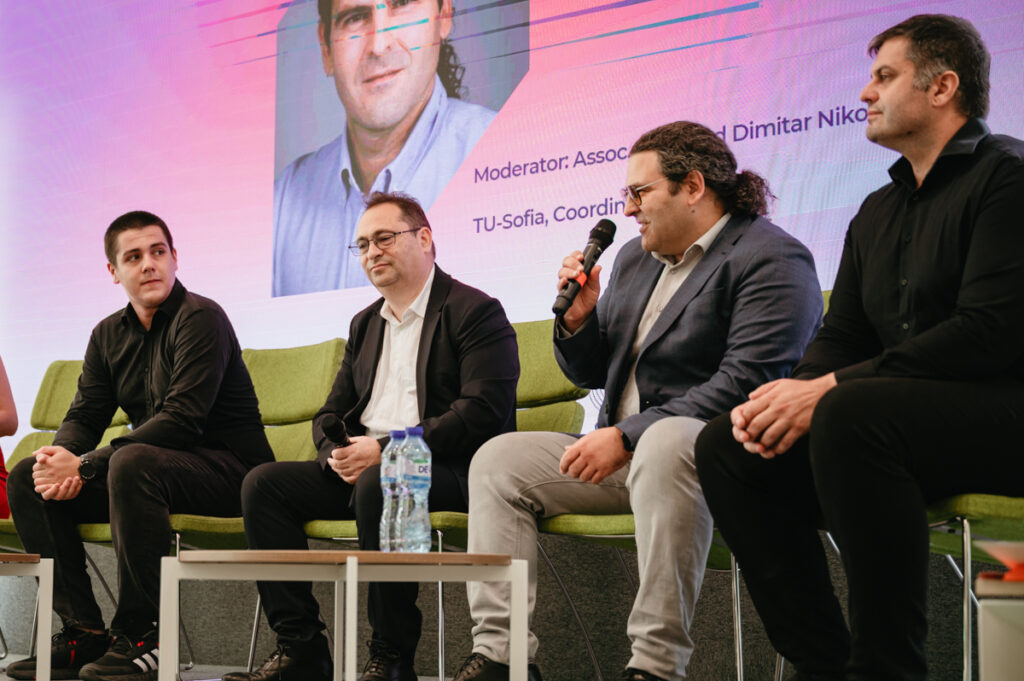
The “European Digital Innovation SpinOff Days” afternoon program offered not just lectures, but a compelling mix of visionary ideas, practical tools and powerful personal storieswhich showed the real path from innovation concept to market realization. The beginning was set by Artur Cyganek (Blackwall), who in his lecture gave practical guidance on cyber defence in the web space – a topic increasingly critical for any innovative company.
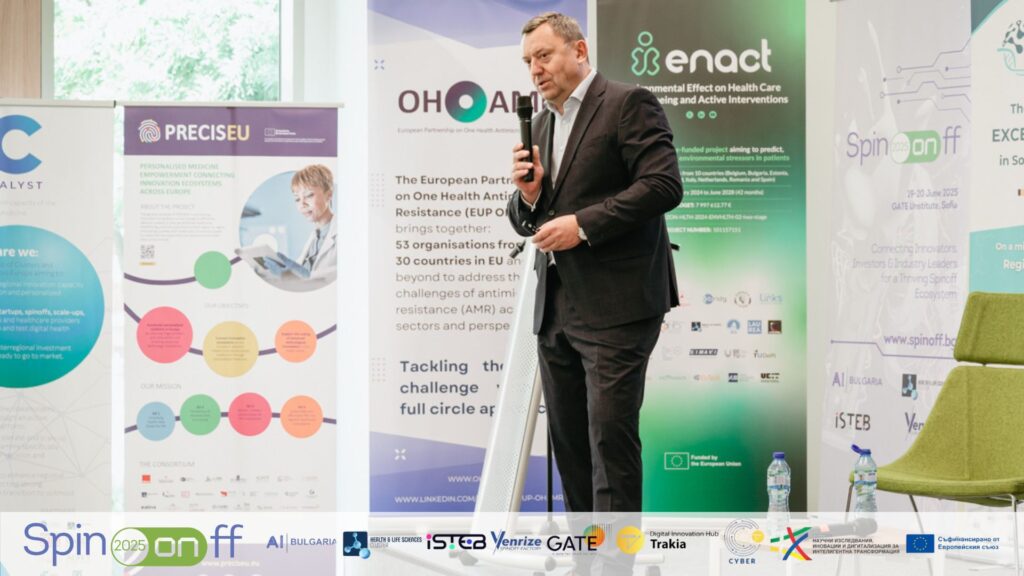
The strong focus on ecosystems continued with the panel “Building a Stronger EU Innovation Ecosystem”, organized by GATE Institute and moderated by Ivan Draganov. The voices of Til Lech (NorwAI, Norway), Natalie Veremeeva (TechUkraine) and Paul Stefanut (Booster Labs, Romania) outlined concrete models for building regional and cross-border innovation networks – with a focus on open data, collaborative programmes and digital entrepreneurship.
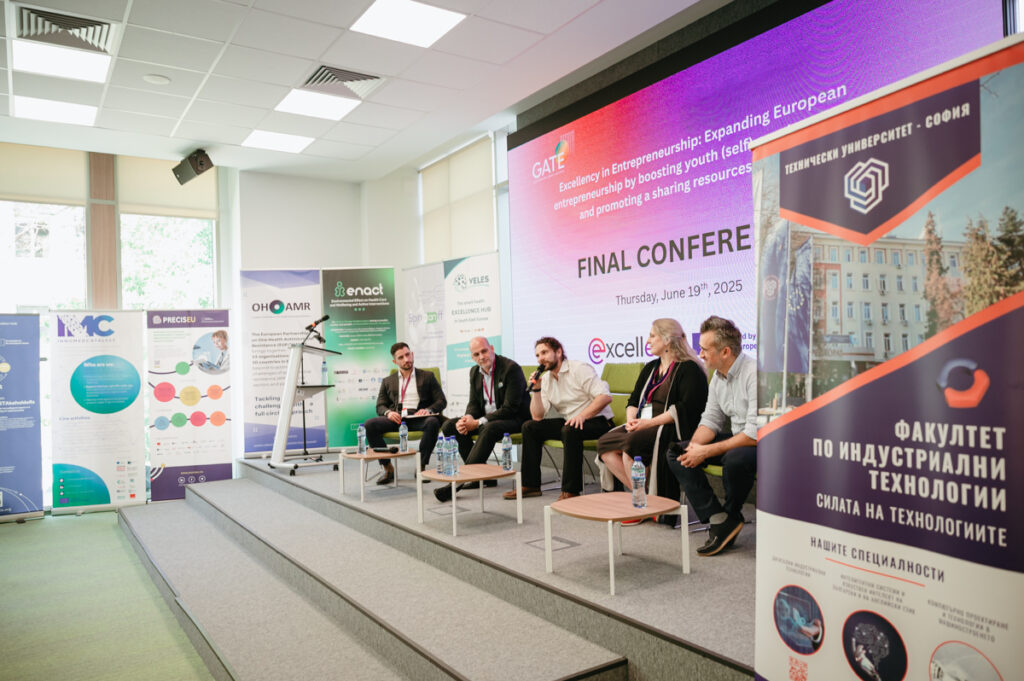
The investment radar was activated in the next panel – “Financing the Future: Investor Insights into Spinoff Opportunities”, moderated by Dr. Eng. Dochka Vassileva, participants such as Henk Joos (Silver Arrow), Veneta Andonova (Universidad de los Andes, Colombia), Francesco Senatore (Bio4Dreams) and Georgi Kaludov (IBM Sofia Accelerator) discussed what investors are looking for in scientific spinoffs, how “non-obvious” innovations are valued and which European regions are emerging as hotspots for high-tech investments.
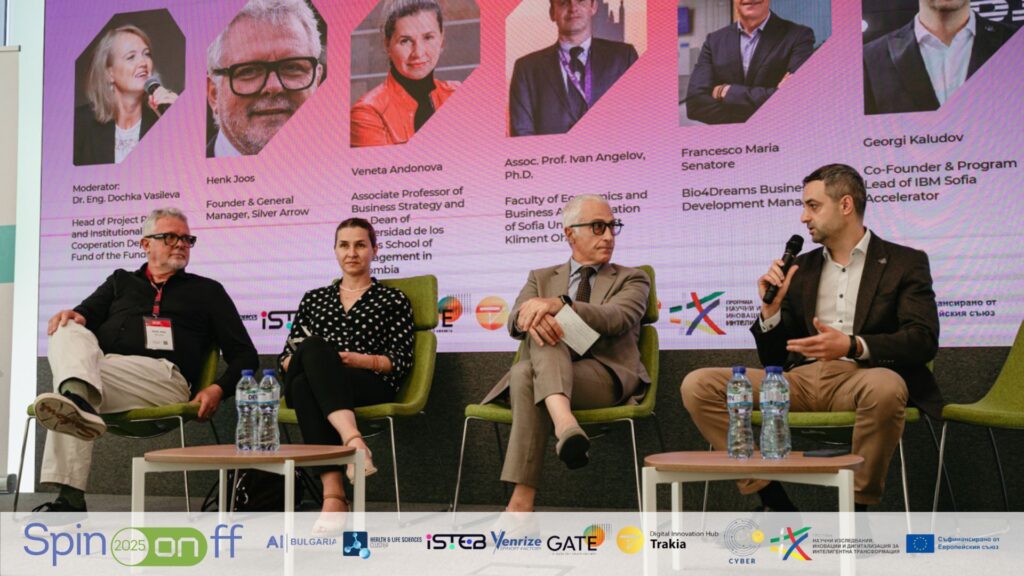
Special mention went to the Best Student-Led Spinoff Award, awarded to Bio-Bliss – a team of four female students who create a sustainable battery from biological waste. Their idea not only impressed the jury with its technological value, but also showed the power of women in science and innovation.
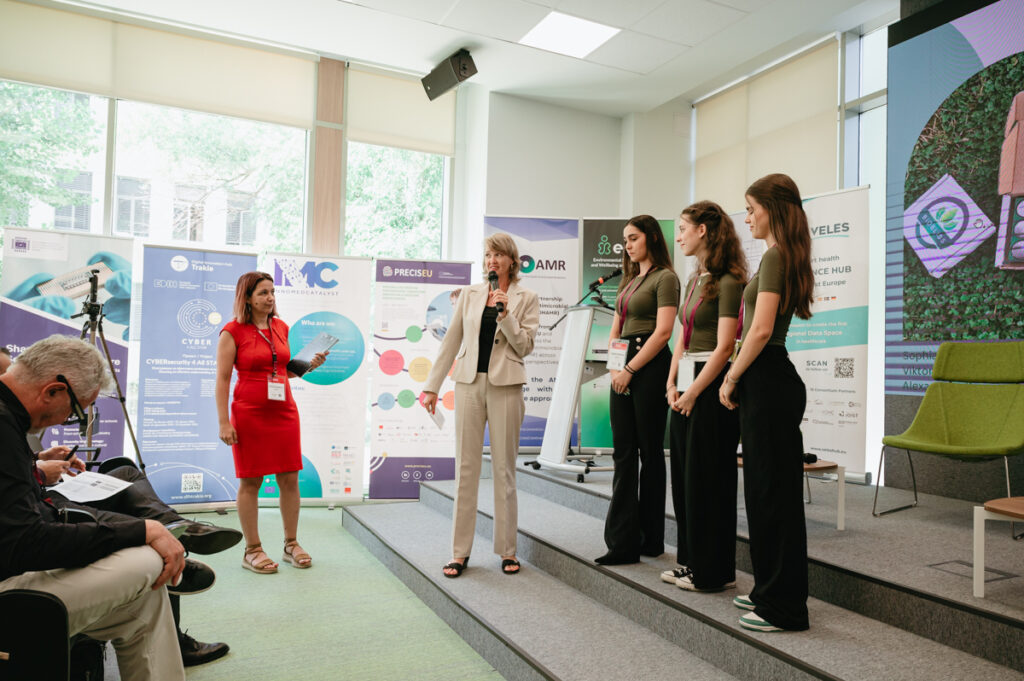
The afternoon of the first day of EDIH Days at Spinoff EUROPA 2025 turned into a stage for entrepreneurial energy and inspiring visions with two consecutive innovation presentation sessions in which young companies and innovators from South East Europe presented their developments to an audience and an expert jury.
The two consecutive presentation sessions turned the stage into a laboratory of the future, where ideas backed by data and vision met with an expert jury and investors.
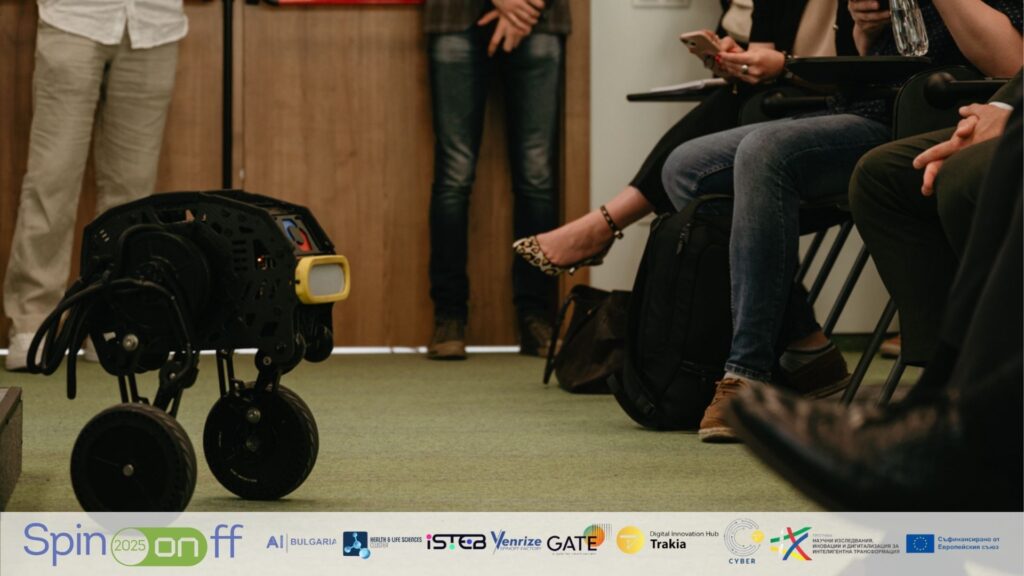
Within „SEE Champions in MedTech“, eleven teams from the Southeast presented solutions that are already changing the healthcare ecosystem. From AI platforms for oncology and assisting surgeons, biosensors for safe food, to ERPs for social services and predictive models for mental health – each project showed how innovation can be both deeply scientific and socially relevant. Among the standouts were Victor Prodanov (Rep2b), Radoslav Rangelov (Mitochondria), Ivo Petrov (Shemha Health), Bilyana Nikolaeva (Holo Medical Assistance), Evdokiya Hikova (CheckPest), Desislava Mihaylova & Silvia Koumanova (Somenso) and Maria Aleksandrova (Analyse This) who didn’t just present products, but told stories with the potential for global impact.
Next session – “Champions of Clean Tech, AI, Microelectronics & Cybersecurity” – was dedicated to the technologies of the future and the people who build them today. With projects in the field of protein desing, green batteries, low-code AI platforms and student deep tech initiativesparticipants once again proved that the Balkans are home to bold visionaries. Nikolay Dobrev (DPTx), Kuzo Donchev (3dopendesign), Kalin Kraev (BioElect), Iva Marinova (TUES) and Nadia Kaloyanova (TechnologyValley) deservedly attracted the attention of the audience with innovative and practically oriented solutions.
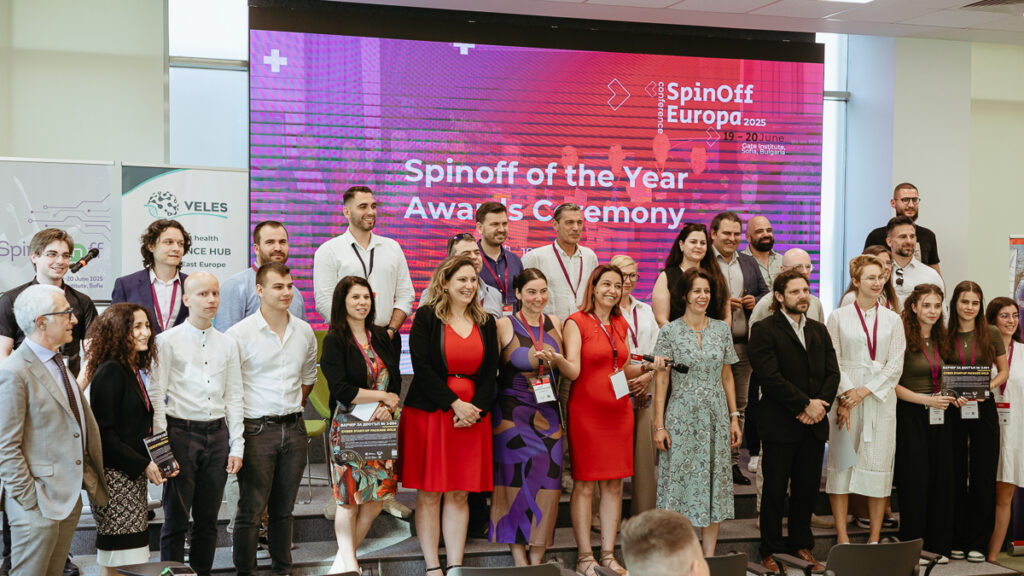
The climax came with the Spinoff of the Year 2025 awards ceremony, which honoured:
- Best Academic Spinoff – Mitochondria – Radoslav Rangelov
- Best Science and Technology Innovation – DPTx- Nikolay Dobrev
- The most market-ready HealthTech solution – Rep2b – Viktov Prodanov/Victor Prodanov
- Largest public contribution through biotechnology – CheckPest
- Most sustainable green innovation – BioElect – Kalin Kraev
- Best student SpinOff – BioBliss – Sophia Nikolova, Alexandra Klianeva, Viktoria Koleva, Nelina Stankova
- Best successful AI transformation in business context – TechnologyValley- Nadia Kaloyanova
- Best Med-tech – HoloMA – Bilyana Nikolaeva
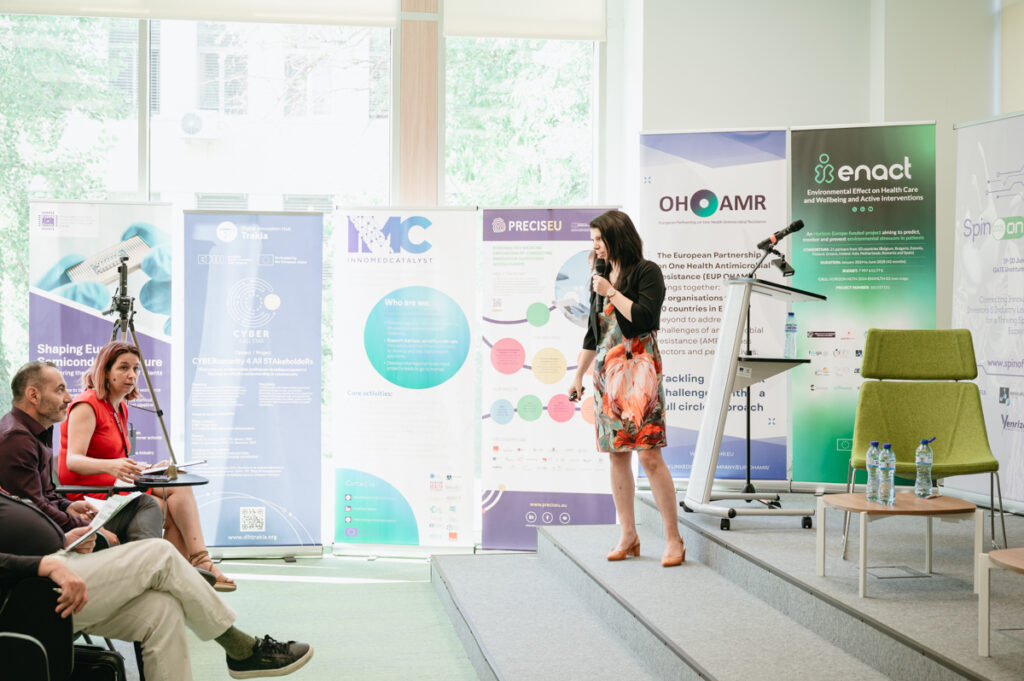
In the parallel program there were consultations on cybersecurity insurance by Levins, a workshop of Women4Cyber Bulgaria Chapter, consultations on ISO certification and many consultations with participants to ensure a higher degree of cybersecurity.
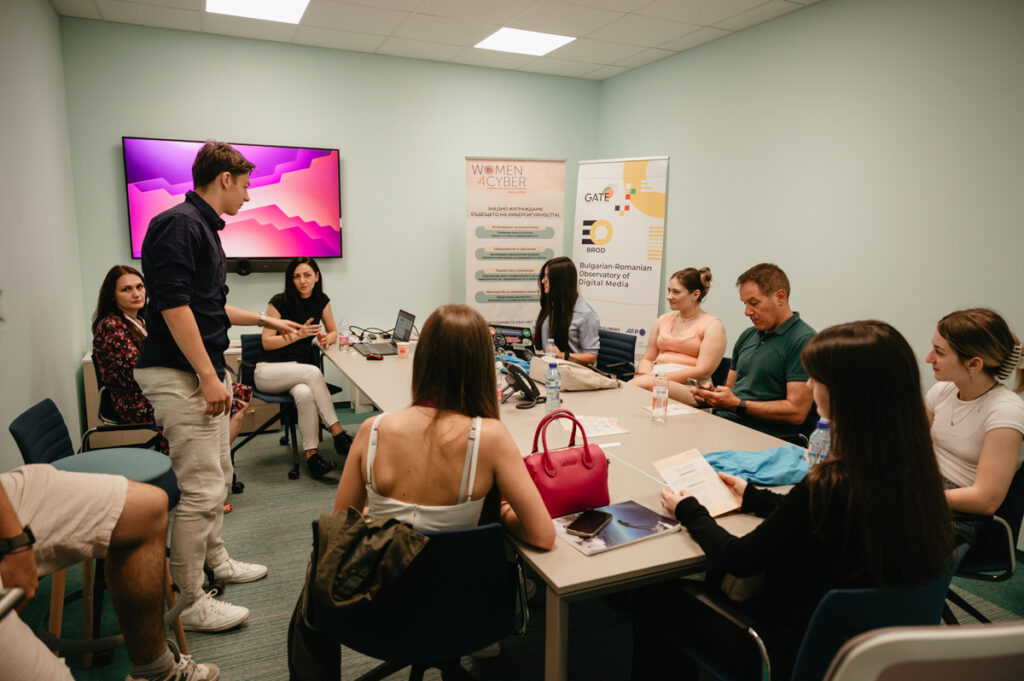
The first day of the conference ended with a very interesting webinar on Financial Engineering for Innovation – The Opportunity of the Three Seas EDIH Corridor.
After the formal program, attendees continued with a networking/B2B expansion session at a cocktail reception.
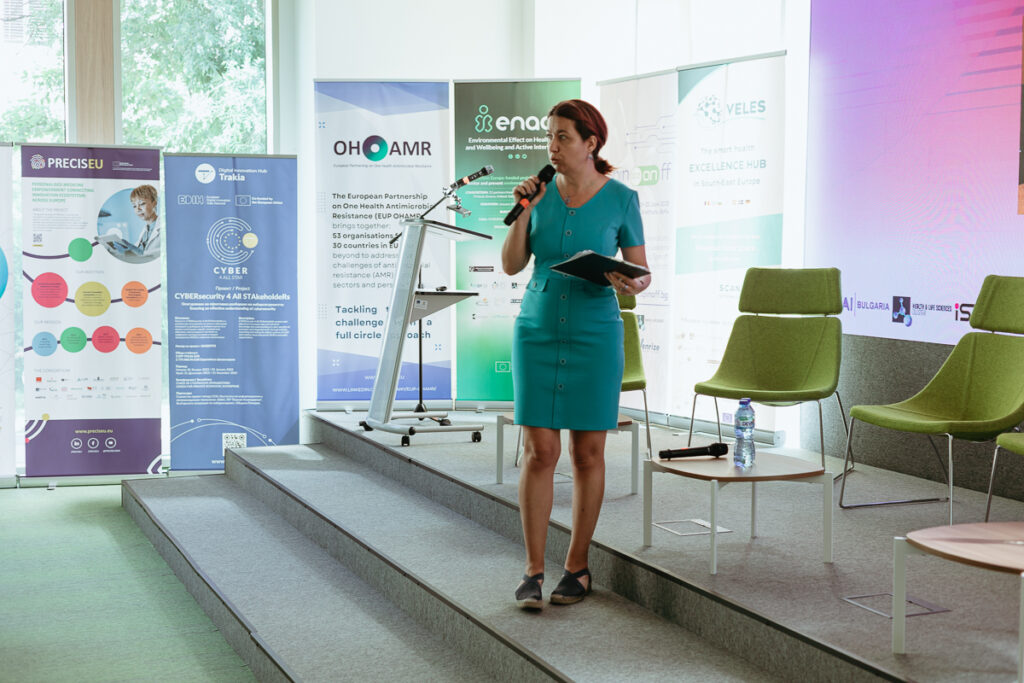
The second day on 20 June 2025 was held under the motto “Science meets Industry”, with a special focus on cybersecurity, turning the GATE Institute into an arena where lab breakthroughs and business realities intersect. The day began with formal speeches from senior government and European officials, including Professor. Georgi Angelov – Deputy Minister of Innovation and Growth, Zornitsa Georgieva from the Ministry of Education and Science and MEP Tsvetelina Penkova, who stressed the strategic role of knowledge for the economic transformation of the region. At the centre of the discussions were Europe’s technological sovereignty, cybersecurity, green industry, healthcare innovation and most importantly – the people behind them.
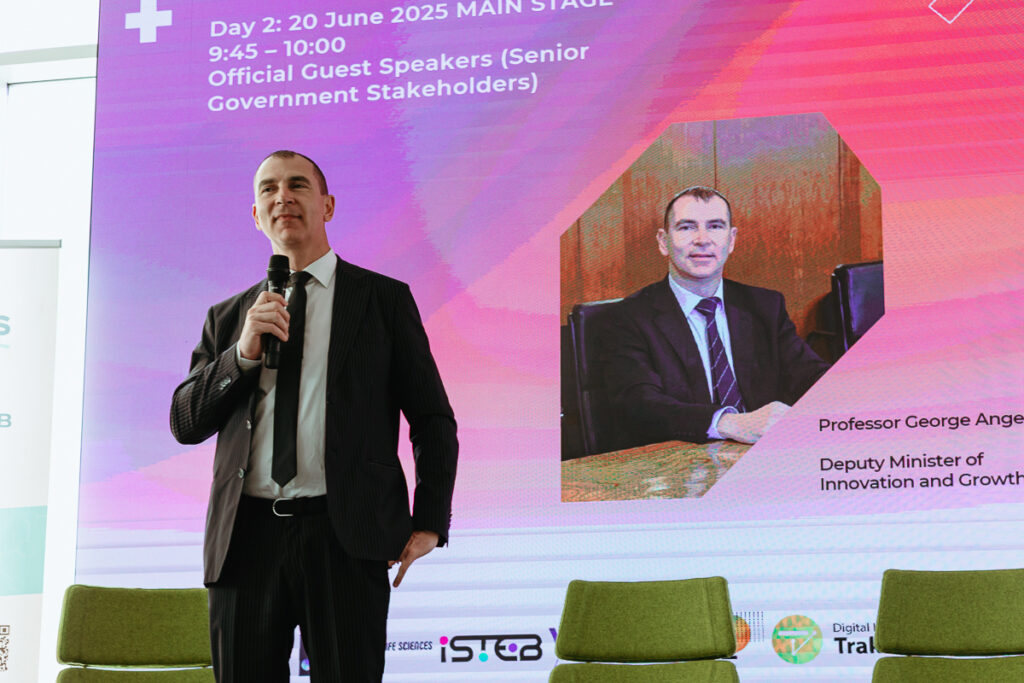
In the microelectronics panel, organized by the Chips Centre of Competence Bulgaria (C3BG), established as part of the implementation of the European strategy for technological autonomy and development of the semiconductor industry within the EU Chips Act, speakers such as Assoc. Prof. Dimitar Nikolov, Prof. Georgi Angelov, Veselin Drobenov and Vladimir Grozdanov discussed how Bulgaria can position itself as a strategic player in the European semiconductor ecosystem.
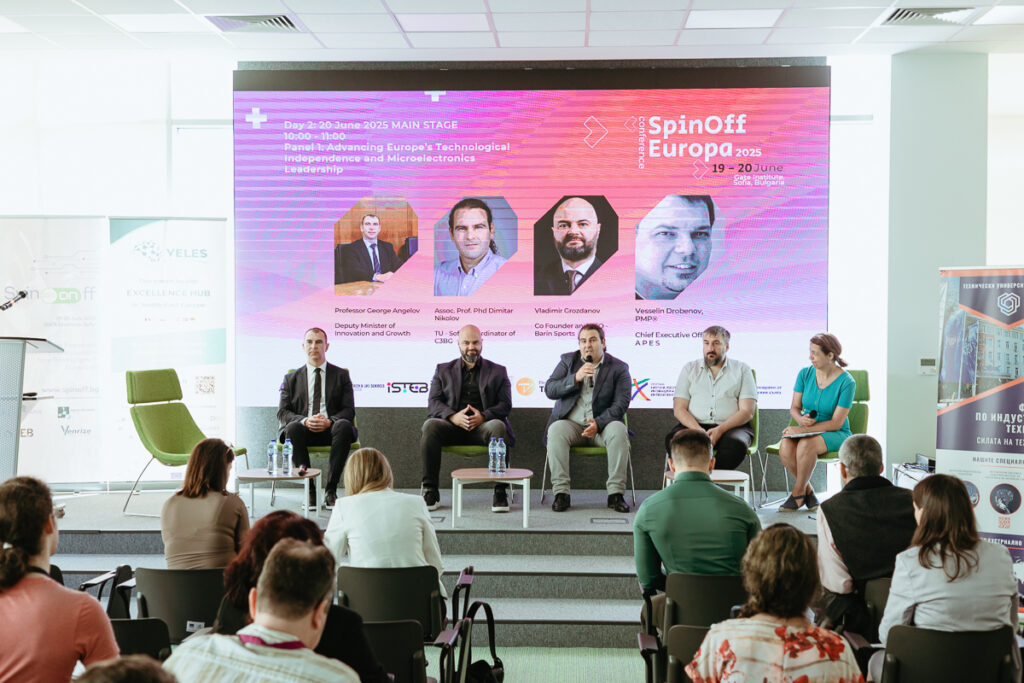
The topic of digital resilience was developed in the panel “Digital Freedom: Europe’s Path to Cyber Resilience”, where experts such as Ivelin Pavlov (AKAT Technologies), Pavlin Koldamov (Fortinet) with a focus on quantum computing, Georgi Hristov (Vivacom), Angel Atanasov (Digital Content Distribution) and Ivan Ivanov (Mainstream Bulgaria – Activate Your Startup) presented innovative approaches to building a trusted, resilient and cybersecure digital environment in Europe.
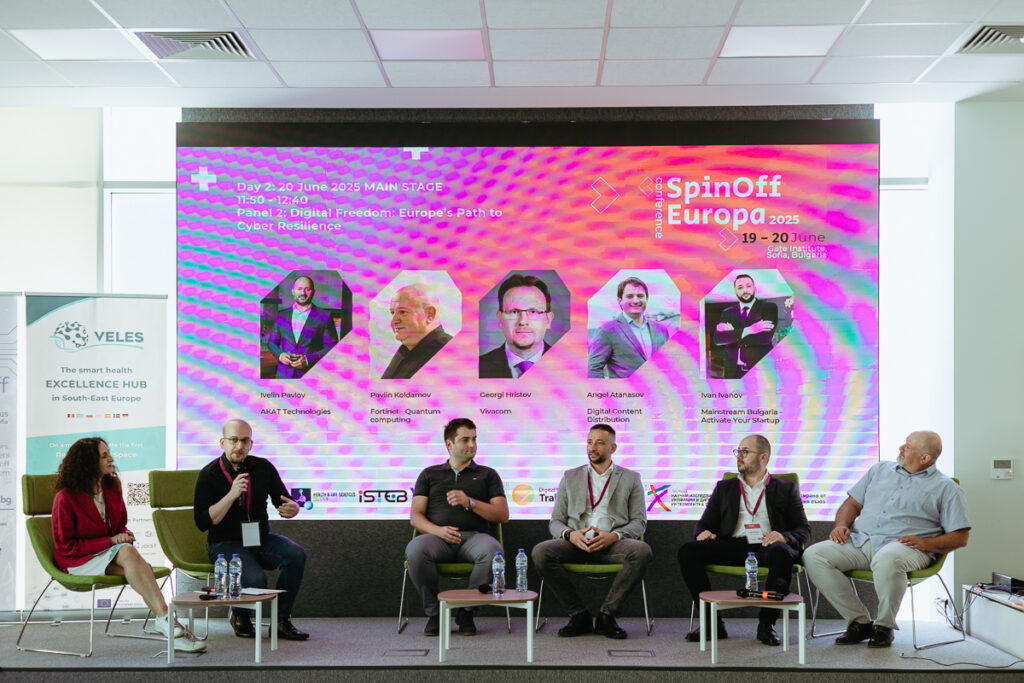
In a special keynote lecture, Kiril Kirilov, COO of Discoverer supercomputer, presented the vision for the creation of AI Factory – an integrated national and regional infrastructure for the development, testing and deployment of artificial intelligence with real-world applications in industry, science and society. He stressed the importance of computing power, open data and human capital for Bulgaria’s future competitiveness in the era of generative technologies.
How to protect science without shutting down innovation? This key question was the focus of the panel in which Dr Nicole Searle from Goldsmiths University (UK) brought an international perspective to the growing need for security in research. Together with Radostina Halacheva (BAS) and Assoc. Prof. Dr. Nikolay Krushkov (UNWE), the three addressed the challenges of intellectual property protection, sensitive data management and the role of Horizon Europe in the context of global scientific competition. The panel outlined the complex balance between scientific openness and strategic autonomy – an issue that can no longer be postponed.
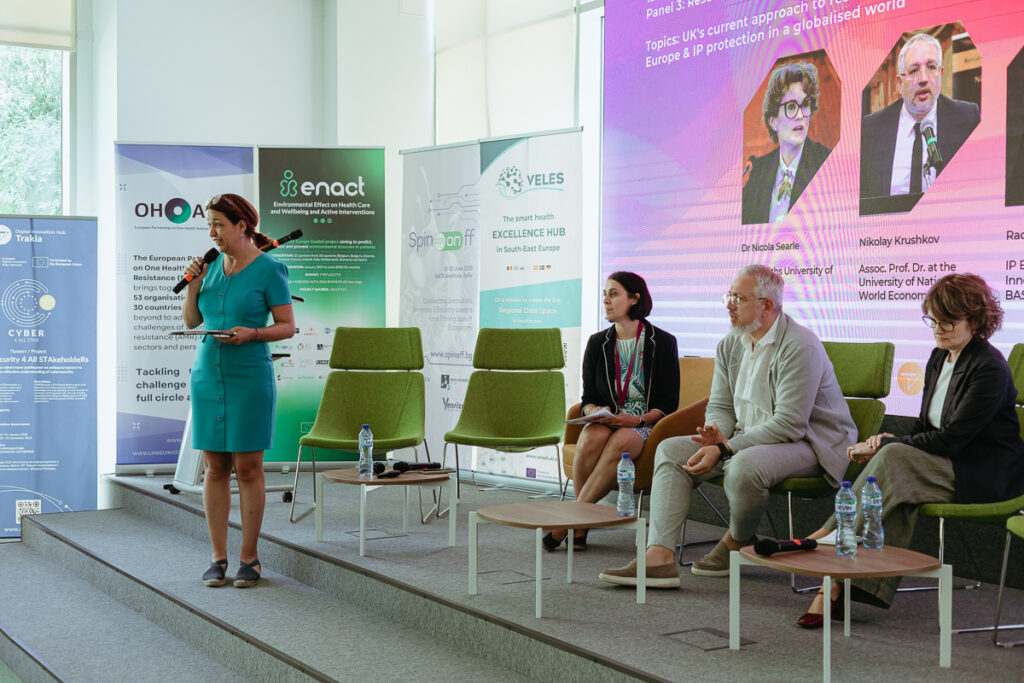
The afternoon session of EDIH Days Spinoff EUROPA 2025 became a stage for powerful visions and practical lessons from four speakers who don’t just talk about innovation – they make it happen. Teresa Sixto Anello from Spanish organisation FEUGA showed how technology transfer can be not a bureaucratic process but a dynamic bridge between the lab and the market. Marco Di Donato from EUREGHA draw attention to regions as the new epicentres of health innovation – places where policies become platforms for real change. In turn, Victor Penev – Founder of Edamam and Health & Longevity Clubconvinced the audience that diet and lifestyle data are not just statistics, but a powerful tool for prevention and personal health. A final highlight Maria Nakova from Cleantech Bulgariawhich inspired with concrete examples of how green technologies can transform industries – not in the distant future, but here and now. What do they all have in common? A deep understanding that innovation happens where knowledge meets need and vision meets action.
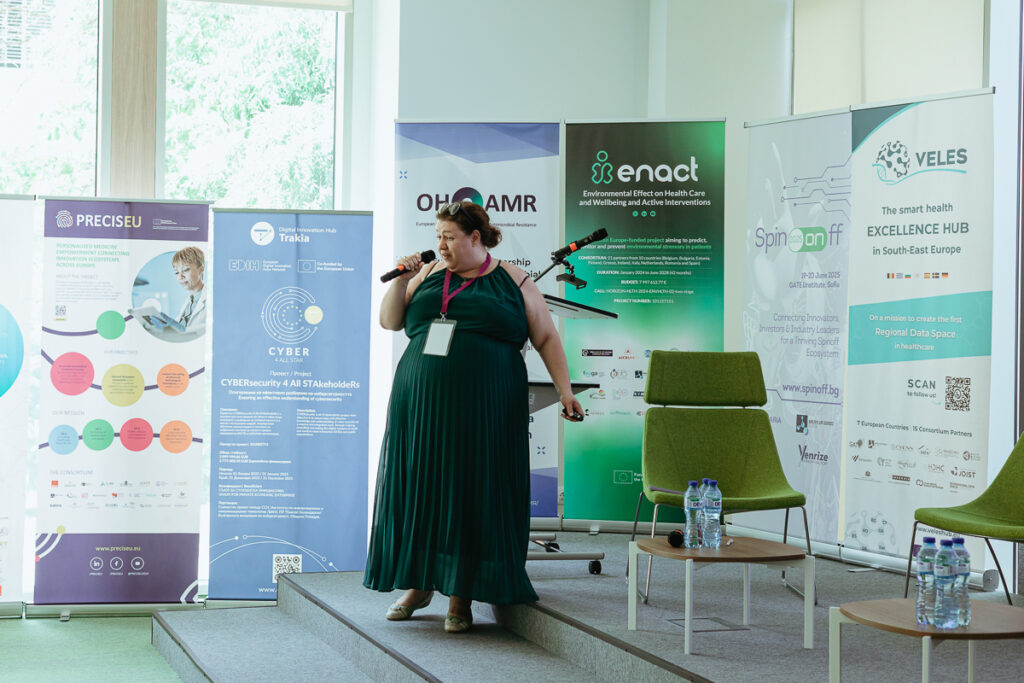
The day ended with a visionary discussion “From knowledge to a talent-driven economy”, in which Prof. Nikola Kasabov (N3BG/KEDRI), Prof. Dr. Eng. Georgi Todorov (TU-Sofia) and Apostolos Dimitriadis (ICS-FORTH, Greece).
A particularly exciting moment for all those who follow the development of artificial intelligence and neuroscience was the video lecture of Prof. Nikola Kasabov – world-renowned scientist and pioneer in neuroinformatics, founder of N3BG and KEDRI, and lecturer at Auckland University of Technology. He presented his vision for building a sustainable ecosystem for deeptech talent in Bulgaria – one that unites modern education, applied science, entrepreneurship and international connectivity. With examples from N3BG – a national and international interest group in neural networks, artificial intelligence and brain-inspired technologies – prof. Kasabov stressed the need for universities to become incubators for knowledge and businesssupported by world-class scientists working both at home and abroad. The video ended with an invitation to all young scientists to join the The N3BG 2026 Summer School dedicated to neurocomputing approaches for brain health – further proof that knowledge has no boundaries when it’s future-focused.
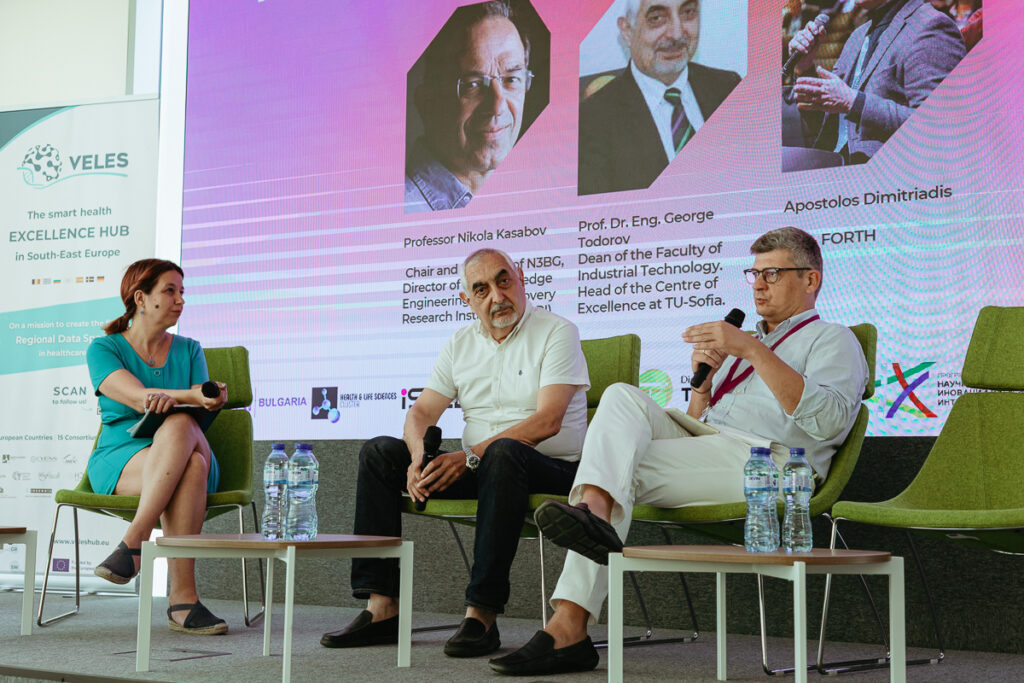
Participants had the opportunity to engage in interactive formats such as Tech Transfer Clinic, Green & Smart Labs, Industry Matchmaking and IP & Investment Cornerwhere ideas met expertise and contacts met the potential for real cooperation. The second day proved that when science meets industry in the right environment, solutions are born capable of changing not only the market but also society.
In a special session “EU and Venture Capital Funding Opportunities” Anton Todorov from New-i presented investment venture financing, and Rumiana Atanasova from ECIC Trakia presented the opportunities for support under the Cyber4AllSTAR, CyberSec4OT and OSCRAT projects.
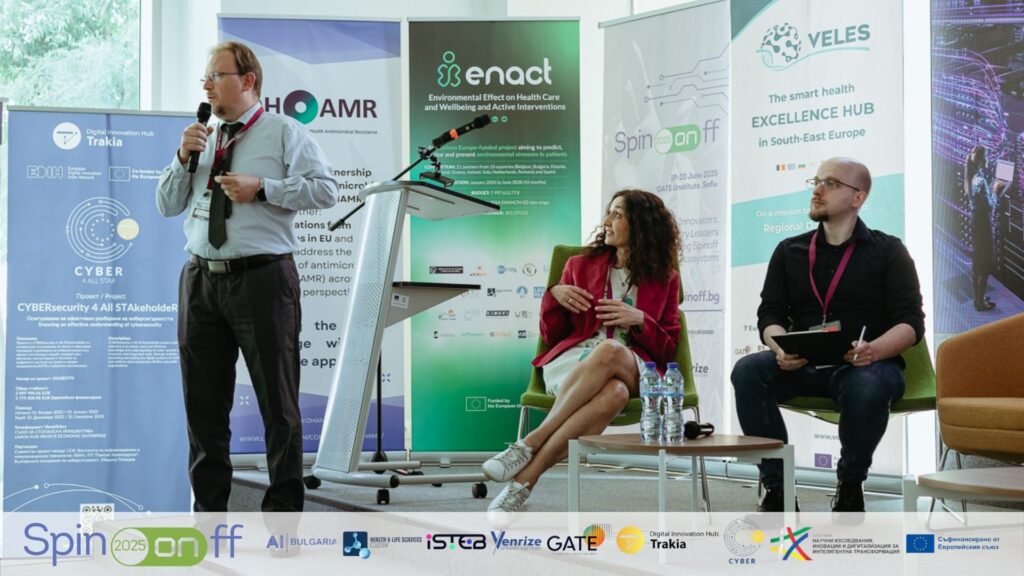
Parallel interactive zones (Triple AI Zone, CyberTech Zone, 360° Labs, B2B Matchmaking) enabled participants to test solutions, connect with partners and validate ideas.
The events concluded with a webinar on grant and investment advisory: Achieving cyber resilience with CONFIRMATE, led by Iva Tasheva, co-founder and cyber security lead of CyEn and Hristian Daskalov, chairman of the board of EDIH Trakia, Cyber4AllSTAR EDIH.
The events were exciting for organizers and participants alike and showed how with a united effort the ecosystem can get support and encouragement and the opportunity to go international.

